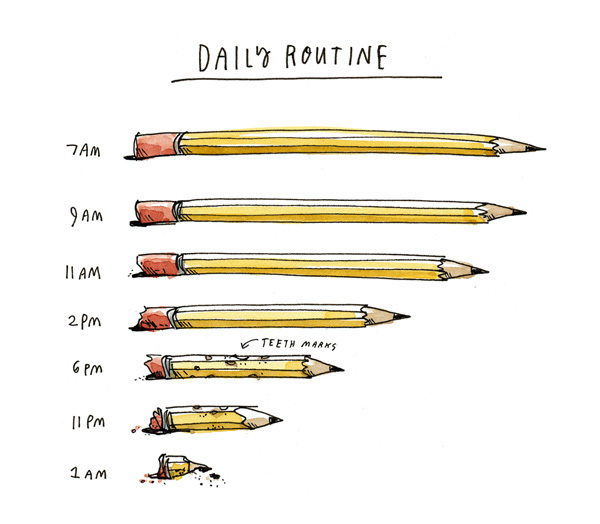7 Unwritten Rules Of Social Media | The New OPEN Forum
Geege Schuman stashed this in Social Media
Stashed in: Interconnectedness!, Twitter!, Facebook!, Marketing!, Influence!, Practice, Google+, Social Media, Communication, Quora!, Manifestos, Etiquette!, Favorites, Rules, Social Media, Good advice
Well, they're written now!
1. Connection does not imply permission
Many social networks make it easy for you to connect with anyone. You can follow someone on Twitter, Quora or Google Plus without needing their permission to do that. A small percentage of them might follow you back. If they do, you have a two-way connection. Don’t confuse the two-way connection as permission to interrupt them. You need to build a relationship and there is no shortcut for that.
2. Access does not imply entitlement
When you connect with someone on a social network and start engaging with them, you have access. Don’t assume that they owe you something because you are now engaging them on social media.
3. Activity is not productivity
The barrier to create content on a social network is virtually non-existent. This means that you can write whatever you want irrespective of whether it makes sense or not. You can get extremely busy with social media— trying to post anything and everything. In your enthusiasm to share, you might drop the quality of what you share and that’s when the problem starts—people will silently start to ignore you. (To read more, please see 9 ways people respond to your content online.)
4. More is not better
When what you write about is a hit for some reason, you tend to end up doing more of it on social media forgetting that everything has a lifecycle of its own. What’s hot today may not stay hot tomorrow and what’s hot tomorrow may not stay hot. So trying to do more of what works does not guarantee success—you need to adapt all the time.
5. Reciprocation is optional
Don’t do anything with an expectation that someone will reciprocate back. Equal actions don’t create equal impact on social media. Say you have a 1,000 followers and you share something from another person who has 10,000 followers. Expecting him to share something from you would mean you are expecting someone to give back ten times of what you gave them.
6. Amplification without accomplishment is futile
Social media is a great amplifier. But fundamentals of mathematics are always at play. You can multiply zero with anything and the result will still be zero. You need relevant accomplishments as the foundation and social media can help amplify them. Sans accomplishments, it’s hard to amplify. Unless your business is to make money with social media, you have to get out of social media and spend time on building some meaningful accomplishments. Once you have them, you can use those to extend your influence using social media.
7. Engagement without enrichment is not effective
You are only as rich as the enrichment you bring to the world around you. When you enrich someone, you make their life more meaningful—at home or at work or in both places. Social media provides an excellent opportunity enrich people’s lives. Engagement for the sake of engagement can only make you get tired. Engage with an intention to enrich and you will not only win with social media but also makes this world a better place.
These rules are very important etiquette.
There are also rules for what makes a great post on Twitter, Facebook, etc.:
There's a link above to "9 ways people respond to you online":
http://lateralaction.com/articles/9-responses/
It has this image:
That graphic is very insightful. Low-value content gets ignored.
The article says:
With every person thinking about more than 50,000 thoughts a day, producing online content can be simple.
Maybe. But simply churning out meaningless content does not guarantee that others will read what you write. Make this mistake and people will read what you write and write you off.
Quality matters. It's better to say fewer things well.
The image above highlights the nine ways your audience will respond to your online content:
- Spam: If your content does not provide a reasonable ROII (return-on-investment for an interaction) for the reader or is self-serving or simply useless, the reader will mark it as spam. Posting something that may be assessed, as “spam” is the fastest way to losing credibility.
- Skip: The reader makes an assessment that he or she won’t lose much by reading it. In this case, the reader has not written you off yet but if you consistently create content that is worth “skipping,” the reader might write you off.
- Scan: The reader thinks there are only a few parts that are of relevance and wants to get right to the core of the content and skip the rest.
- Stop: The reader is touched by the article and stops to think about the article, it’s relevance and what it means to him or her personally and professionally.
- Save: The content is so good that the reader might want to re-visit this multiple times.
- Shift: The article is transformational. The reader is so deeply affected (in a positive way) by the article that it shifts some of their values and beliefs. In other words, this piece of writing will transform the reader and make him or her grow.
- Send: The content is not only useful to the reader but also to one or more people in the reader’s network. The reader simply emails the article or a link to it to people that he or she cares.
- Spread: The reader finds the article fascinating enough to spread it to anyone and everyone via a blog, twitter or the social networks that he or she belongs.
- Subscribe: This is the ultimate expression of engagement and a vote of confidence that you will continue to provide great content. When the reader wants to continue listening to your thoughts, he or she will subscribe.












10:17 PM Jun 22 2013